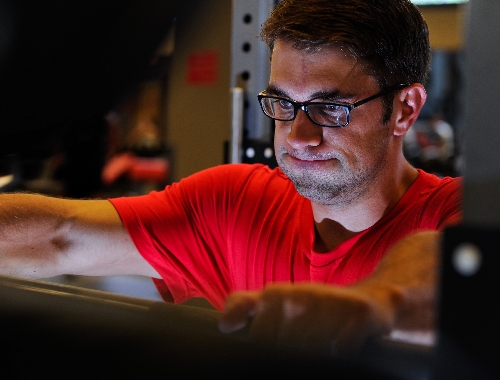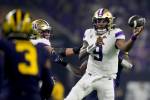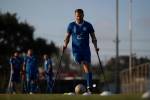Refocusing can improve performance, scientist says
Life takes its twists and turns, and if you're lucky, you can remember the day everything changed.
For Gabriele Wulf, that day was 20 years ago while she was windsurfing in Italy.
Wulf, who is from Germany, is a kinesiology professor at the University of Nevada, Las Vegas. That means she studies the way bodies move. Everyone from athletes to accident victims has a stake in what she does.
So on that day 20 years ago, there was a particularly difficult turn maneuver she wanted to pull off. She knew where to put her feet on the board, when to pull on the sail, that sort of thing.
She practiced like crazy. She focused intensely on her body's movements. And yet, she could not for the life of her execute that turn.
Frustrated, she declared then and there that she was through focusing so much on doing it right, on her feet and her hands and the way her body was positioned on the board.
You know where this is going, don't you?
"It immediately worked so much better," she said. "I was kind of stunned."
By not thinking about what her body was doing, her body did what she'd hoped it would do. The irony was delicious.
She's been studying that irony ever since.
Specifically, Wulf, who came to UNLV 10 years ago, studies the interactivity between our thought processes and our motor skills - basically, how our bodies do what our brains tell them to do.
Here is what she has come to learn: Our brains are crazy.
She's not a brain scientist, so that's just an opinion. But there seems to be ample evidence for it.
She said study after study confirms this over and over again. The more we think about our bodies, the less able we are to control them.
Here's a hypothetical example: A great baseball hitter is in a slump. He can't connect with the ball. His coach tells him to focus on the placement of his feet in the batter's box, on where he holds the bat.
He gets worse because he's thinking about the wrong things. He should focus on the ball, the bat, the field - anything but his own body.
"That's why people choke in sports," Wulf said.
Or this, from real life: A stroke patient cannot bend her leg very well. She has trouble walking. Her physical therapist tells her to focus on the knee as she's trying to bend it. It does not work.
Then a kinesiology professor from the university drops by and has an idea: Let us fasten a couple of those wooden tongue depressors to the side of her legs just above and below her knee.
Focus, the professor says, on the sticks, not on your legs. Bring the sticks closer to one another.
Again, you know where this is going, don't you?
"All of a sudden," Wulf said, "she started walking so much better by focusing on the sticks instead of her legs."
The implications of this are vast.
Andrew Hooyman is a graduate student who works with Wulf on her research. He is a weight lifter, and he used to be a personal trainer in the campus recreation center.
He would tell someone doing pushups, for example, to stop focusing on his arms and to instead focus on the floor.
Weight lifters should focus on the weight, not their arms or their muscles. Runners should focus on the goal, or even on their shoes, but not on their legs.
Hooyman, who is almost finished with his master's degree and plans to pursue a doctorate, is interested in autonomy - self-learning - and how it might be a better way of learning, compared with instruction.
Wulf said the area she's been studying, called attentional focus effect, is largely unknown to the public. That's a shame, she said, because it's important not only in athletics, but in physical therapy for everyone from accident victims to patients with Parkinson's disease.
She did one study with Parkinson's patients where they were told to stand atop a rubber ball with a disk attached and try to maintain their balance.
The patients were told to keep their feet still. As they tried, researchers measured how much they were swaying.
Next, they were told to keep the disk still.
"They were much more stable when they focused on the disk, rather than their feet," Wulf said.
There is some evidence that this sort of strategy works in the long term, too. Wulf said more studies need to be done, but it looks good.
Other studies show that the rethinking of how we think also could apply to mentally challenged children, and kids with attention-deficit hyperactivity disorder, she said.
Teaching them could be as simple as redirecting their focus away from themselves.
What's needed now is awareness, Wulf said; trainers, coaches, athletes and therapists need to learn this and pass it along.
Contact reporter Richard Lake at rlake@reviewjournal.com or 702-383-0307.






























